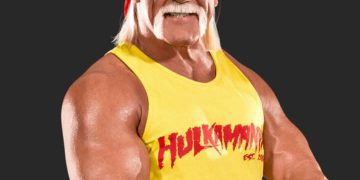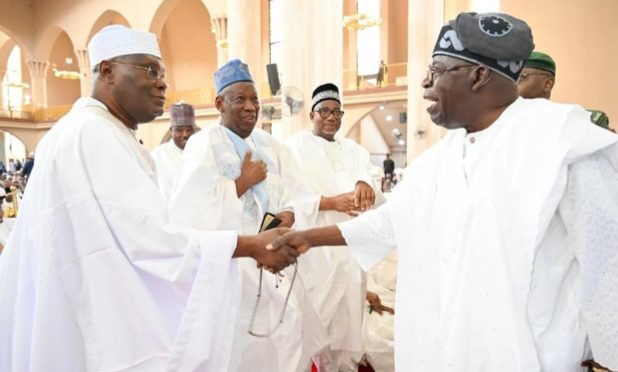In both Nigeria and Argentina, the middle class has been squeezed: many who were managing to live decent lives have slid backwards because soaring prices and job losses, undermining the very social fabric needed for a stable economy. Tinubu’s Nigeria and Milei’s Argentina present a distinction without a difference
By Farooq A. Kperogi
President Bola Tinubu’s Senior Special Assistant on Social Media by the name of Dada Olusegun reportedly said on Thursday that had Nigerians elected former Vice President Atiku Abubakar as president, they would have been sweltering in the same snake pit of torment and economic decline as Argentinians are.
Olusegun’s comment was informed by Atiku’s previous praise for Argentinian President Javier Milei’s economic reforms on February 25, 2024, when Atiku had encouraged Tinubu to emulate the Argentine model.
“Reports have shown how Argentina’s real economy which Alhaji Atiku wants Nigeria to emulate is in severe crisis,” he was quoted to have written on Twitter. “Public debts have reached new highs with the country owing more to the IMF than any other country in the world. Meanwhile, its education sector, manufacturing and construction are collapsing amid rapid deindustrialization. Argentina has $41 billion in credit outstanding, representing 28% of all debt owed to the Fund.”
It’s interesting that the presidential aide painted a dystopian vision of Nigeria’s fate under an Atiku Abubakar presidency by invoking the existential turmoil gripping Argentina under Javier Milei. Yet, delicious irony hums beneath the surface, unseen by Olusegun. President Tinubu’s own economic prescriptions mirror Milei’s policies so closely they might as well be fraternal twins.
Both Tinubu and Milei are champions of punishing austerity. Both are architects of spiraling inflation and social distress. But as the presidential aide warned Nigerians against the imagined peril of emulating Argentina, he entirely missed the reflection staring back from his own political mirror.
He seems blissfully unaware that his cautionary tale is already Nigeria’s lived reality, which is dramatized in the daily hardships and grievances of citizens enduring a spectacle not different from Milei’s Argentina.
In my March 9, 2024, column titled “Rise of Right-wing Economic Populism in Nigeria,” where I tackled Atiku for prescribing Argentina as a model for Nigeria,’ I wrote the following, which is still relevant today:
“Everyone within striking distance of becoming president in Nigeria in 2023 subscribed—and still subscribes—to the consensus that the IMF and the World Bank are inviolable economic oracles that must not be disobeyed, that subsidies must be eliminated and the poor be left to fend for themselves, and that the market is supreme and should be left to determine the value of everything.
“In fact, the other day, PDP presidential candidate Atiku Abubakar put out a press statement titled ‘Argentina’s Javier Milei approach to reforms should serve as a lesson for Tinubu’ where he extolled the dangerously right-wing Argentinian president Javier Milei whose rightwing economic populist policies are destroying the fabric of his country.
“‘I read a recent report in Reuters titled: “Argentina’s market double down on Milei as investors ‘start to believe”,’ he wrote.
“Well, the same Western financial establishment is already praising the outcome of Tinubu’s economic policies. A March 8, 2024, report from Bloomberg, for instance, has said that ‘Foreign investor demand for Nigerian assets surges as reforms instituted by President Bola Tinubu’s administration starts paying off.’
“Similarly, one David Roberts, identified as a former British Council Director in Abuja, bragged the other day that Nigeria’s economy ‘posted a GDP growth of 3.46% in quarter 4’ as a result of Tinubu’s economic reforms.
“He wrote: ‘Why would a country with a severe infrastructural deficit invest more money on a wasteful expenditure such as cheap petrol, instead of building schools, hospitals, dams and a national railway system? It is evident that it had to go.
‘We joined the World Bank and the International Monetary Fund in saying as much to the Nigerian government. And at long last, it is gone.’
“People outside Nigeria reading about Nigeria in the Western financial press would think Nigerians are now living in El- Dorado as a result of Tinubu’s ‘reforms’—just like Atiku thinks a favorable Reuters story about the anti-people economic policies of Milei, who is called the ‘Madman of Argentina,’ is already yielding excellent outcomes.
“If you do the bidding of the Western establishment, they will always make up statistics to show that your economy has grown. I called attention to this in my June 28, 2023, column titled, ‘Why Tinubu’s Hiring and Firing Frenzy Excites Nigerians.
“I wrote: ‘What shall it profit a country when it pursues policies that cause the economy to ‘grow’ but cause the people to growl? After the economy has ‘grown’ but the people still groan, where is the growth? The most important growth isn’t the rise in abstract, disembodied, World Bank/IMF-created metrics but in the improvement of the quality of life of everyday folks.’
“Milei’s Argentina that Atiku is praising is almost in the same right-wing economic hellscape as Nigeria is. Like Tinubu, Milei began his presidency by removing subsidies for petrol and transportation and devaluing the Argentinian peso by more than 50 percent. In addition, he threw scores of workers into unemployment when he reduced the number of ministries in the country.
“He is so market-centric he scrapped a whole host of rules designed to reign in the greed and exploitation of private enterprises. He did this by getting the parliament to approve the principle of ‘delegated powers’ to the executive for one year, which allows him to rule by decree like a military dictator in the name of ‘economic urgency.’
“The result? Like in Nigeria, most Argentinians are having a hard time finding food to eat. A February 1, 2024, CNN story captures it: “‘I don’t know how I will eat.’ For the workers behind Argentina’s national drink, Milei’s reforms are turning sour.”
“Argentinian workers periodically go on strike to protest Milei’s punishing right-wing policies. On February 28, all flights were cancelled in the country because air travel workers went on a crippling 24-hour strike.
Just as Tinubu’s swift removal of petrol subsidy and his devaluation of the naira set off inflationary shockwaves that hit millions of households in Nigeria, Milei’s shock therapy, which also involves subsidy cuts, currency plunge, and fiscal austerity, has exacerbated hyperinflation and unemployment, caused more than half the population to teeter below the poverty line, and provoked social unrest
“A March 4, 2024, Bloomberg report said Milei’s policies had caused spending to plunge at shops in Argentina, that firms were seeing double-digit sales declines for third straight month, that the worth of salaries had plummeted amid a paralyzing 250% inflation, and that recession was deepening in the country.
“The lead to the story says it all: ‘Consumers in Argentina are running out of options to shield themselves from runaway price increases as President Javier Milei’s austerity measures send the country deeper into recession.’
“That’s Atiku’s exemplar for Nigeria. Peter Obi is, of course, no different. Tinubu, Atiku, Obi, and in fact Yemi Osinbajo are united in their love for rightwing economics, which invariably leads to an increase in poverty, suffocation of workers, rolling back of welfare for common people, etc.
“In a perverse way, they are actually worse than Buhari because they are self-conscious conservative economic ideologues. Buhari is merely a know-nothing, bungling, kakistocratic power monger.
“The real tragedy is that the vast majority of Nigerians who are ensconced in the narrow ethno-religious political silos built around the personalities of the major 2023 presidential candidates don’t realize that on economic policies, which is what really matters, Tinubu, Atiku, Obi, and Osinbajo are more alike than unlike.
“Sadly, Nigerian leftists, who used to be the bulwark against the dangers of conservative economic totalitarianism, have either been coopted or silenced. Only Femi Falana, Majeed Dahiru, I, and a few others consistently stand up to the forces of economic conservatism.
“This state of affairs will ensure that Tinubu’s successor will be another neoliberal ideologue who will bludgeon his way to the presidency using religion and ethnicity as cudgels. When he deepens the misery he inherits, he will blame his predecessor for not being a faithful practitioner of the neoliberal gospel. His own successor will replicate his template.
“After three terms of this right-wing baloney, Nigeria will be irretrievably gone. The time to pivot from the IMF and the World Bank and to reject everyone who is their poodle is now.”
Because Tinubu’s presidential aide is shielded from the biting aftermath of his principal’s cruel economic policies, he imagines that Nigeria is different from Argentina. He is deluded. He lives in an alternate, sequestered reality.
Just as Tinubu’s swift removal of petrol subsidy and his devaluation of the naira set off inflationary shockwaves that hit millions of households in Nigeria, Milei’s shock therapy, which also involves subsidy cuts, currency plunge, and fiscal austerity, has exacerbated hyperinflation and unemployment, caused more than half the population to teeter below the poverty line, and provoked social unrest.
In both Nigeria and Argentina, the middle class has been squeezed: many who were managing to live decent lives have slid backwards because soaring prices and job losses, undermining the very social fabric needed for a stable economy. Tinubu’s Nigeria and Milei’s Argentina present a distinction without a difference.
•Opinions, positions or thoughts expressed here are personal and strictly of the writer/author and do not represent the views of The Daily Crucible.









































